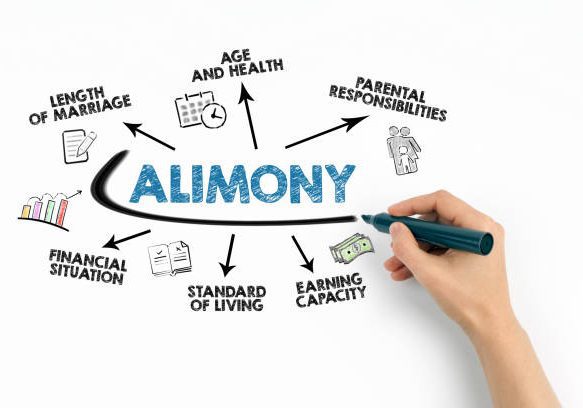- Profile
- Family Law
- Personal Injury
- Civil Rights
- Workers’ Compensation
- Amputation
- Construction Accidents
- Disfigurement
- FELA Cases (Railroad Worker Injuries)
- Industrial Accidents
- Loss of Hearing
- Loss of Limbs
- Loss of Vision
- Lung Diseases
- Paralysis
- Traumatic Brain Injury (TBI)
- Work Machinery/Equipment Accidents
- Work Travel Accidents
- Workplace Hazard Injuries
- Workplace Fatalities
- Contested Hearings
- Lifetime Medical Benefits
- Wage Benefits
- Workers’ Compensation Claims Process
- Testimonials
- Blog
- Contact
Call for Consultation
- Profile
- Family Law
- Personal Injury
- Civil Rights
- Workers’ Compensation
- Amputation
- Construction Accidents
- Disfigurement
- FELA Cases (Railroad Worker Injuries)
- Industrial Accidents
- Loss of Hearing
- Loss of Limbs
- Loss of Vision
- Lung Diseases
- Paralysis
- Traumatic Brain Injury (TBI)
- Work Machinery/Equipment Accidents
- Work Travel Accidents
- Workplace Hazard Injuries
- Workplace Fatalities
- Contested Hearings
- Lifetime Medical Benefits
- Wage Benefits
- Workers’ Compensation Claims Process
- Testimonials
- Blog
- Contact

Divorce is a significant life event that marks the end of one chapter and the beginning of another. For those residing in Illinois, understanding the legal process is the first step towards embarking on this new journey. At Pinkston Law Group, P.C., we are dedicated to guiding you through every step of the way, ensuring that your divorce is handled with the professionalism and sensitivity it deserves. Here’s what you need to know about legally finalizing a divorce in Illinois.
Step 1: Meet the Residency Requirement
To file for divorce in Illinois, either you or your spouse must have been a resident of the state for at least 90 days. This foundational step ensures that Illinois courts have the jurisdiction to preside over
your divorce proceedings.
Step 2: Grounds for Divorce
Illinois is a no-fault divorce state, meaning that you do not need to prove fault or wrongdoing by your spouse to obtain a divorce. The only ground for divorce in Illinois is “irreconcilable differences,” which indicates that the marriage has broken down beyond repair and efforts at reconciliation have failed or would be impractical and not in the best interests of the family.
Step 3: Filing for Divorce
The process officially begins when one spouse (the petitioner) files a Petition for Dissolution of Marriage in the county where either spouse resides. This document outlines the basic information about both spouses, their marriage, and any children, along with the relief sought, including division of assets, child custody, and support arrangements.
Step 4: Serving the Petition
After filing, the petition must be formally served to the other spouse (the respondent), giving them notice of the divorce proceedings. The respondent has 30 days to file an answer to the petition, where they can agree to the terms or contest them, leading to negotiations or court intervention.
Step 5: Financial Disclosures
Both parties are required to exchange financial disclosures detailing their assets, debts, income, and expenses. This step is crucial for the equitable division of marital property, determination of spousal support, and child support calculations.
Step 6: Negotiation and Settlement
Many divorce cases are resolved through negotiation, resulting in a marital settlement agreement. This agreement covers all aspects of the divorce, including property division, child custody, and support. If the parties can reach an agreement, the court will review it to ensure fairness before finalizing the divorce.
Step 7: Trial
If negotiation fails, the divorce will proceed to trial, where a judge will make decisions on all contested issues. Trials can be lengthy and costly, so they are generally considered a last resort.
Step 8: Final Judgment
Once all issues are resolved, either through settlement or trial, the court will issue a final judgment of dissolution of marriage, officially ending the marriage. Both parties will receive a copy of the judgment for their records.
Conclusion and Call to Action
Navigating a divorce can be emotionally and legally challenging, but you don’t have to go through it alone. At Pinkston Law Group, P.C., we understand the intricacies of Illinois divorce law and are committed to providing our clients with compassionate, competent representation. Our goal is to help you achieve a resolution that allows you to move forward with your life in a positive direction.
If you’re considering divorce or have already begun the process, we invite you to contact us for a consultation. Let us handle the legal complexities while you focus on beginning your new chapter. Reach out to Pinkston Law Group, P.C. today, and take the first step towards securing your future.
Blog Categories
Post Archives
Other Blog Posts
Posts You May Like
September 06, 2024
Determining Alimony in Illinois: Key Factors Courts Consider
When couples in Illinois decide to divorce, one of the…
September 06, 2024
Types of Alimony in Illinois: Understanding Your Options
When a marriage ends, financial arrangements are often a major…
September 06, 2024
Understanding Alimony in Illinois: A Comprehensive Guide
Divorce can be an emotionally and financially challenging process. Among…
View All Blog Posts

We Will Fight For You
Contact Us To Discuss
Your Case
Advertising Material. This information is designed for general information only. The information presented should not be construed to be formal legal advice nor the formation of a lawyer/client relationship. Past results and testimonials are not a guarantee, warranty, or prediction of the outcome of your case, and should not be construed as such. Past results cannot guarantee future performance. Any result in a single case is not meant to create an expectation of similar results in future matters because each case involves many different factors, therefore, results will differ on a case-by-case basis. By providing contact information, users acknowledge and give explicit consent to be contacted via the methods of communication provided, including SMS. Message and data rates may apply. Message frequency may vary. Reply STOP to opt out.
Copyright 2025 All Rights Reserved | Accessibility Notice | Privacy Policy




